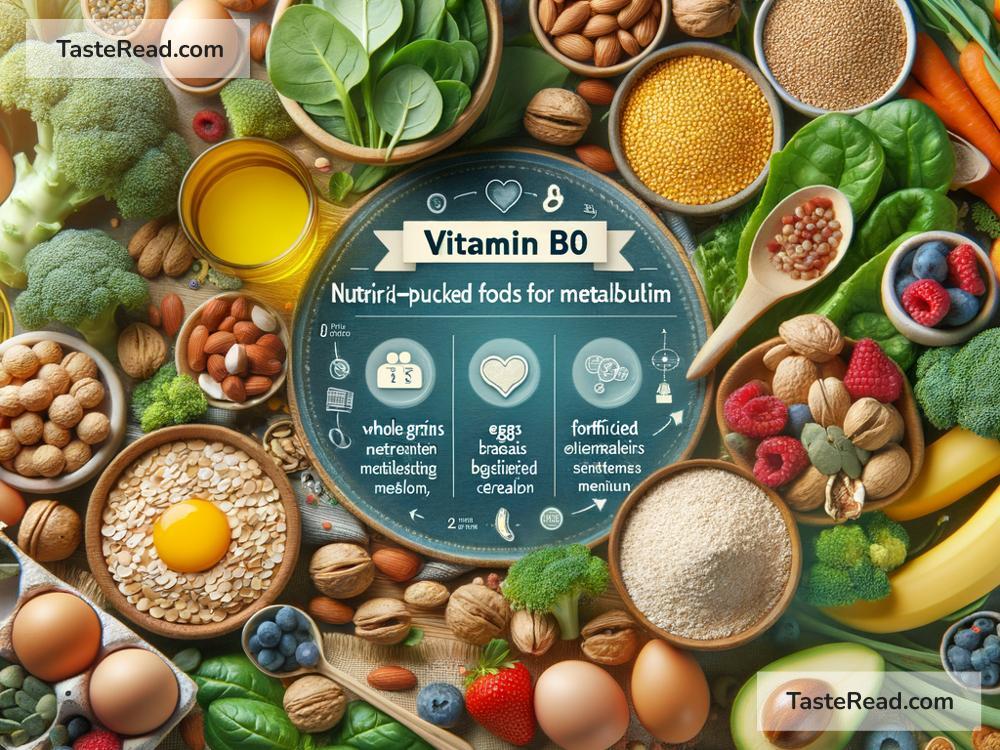The Role of Vitamin B80 in Metabolic Health
Vitamins are essential nutrients that help our bodies work properly. One particular vitamin gaining attention is Vitamin B80. While Vitamin B80 is not officially recognized as part of the classic B vitamin group (like B12 or B6), discussions around its potential benefits for metabolic health are becoming more popular in scientific communities. Let’s dive into what Vitamin B80 is, what it might do for your metabolic health, and why it matters.
What is Vitamin B80?
You might be wondering, “I’ve heard of Vitamin B complex, but what is Vitamin B80?” The truth is, Vitamin B80 is a term that refers to a theoretical or emerging nutrient in ongoing research. It’s not yet an official vitamin with established roles. Scientists are exploring if certain compounds—like unique cofactors or derivatives of existing B vitamins—could fall into this category. For now, Vitamin B80 is largely a concept tied to how our cells handle energy and metabolism. Though not available as a standard supplement, its effects could lead to exciting discoveries.
What is Metabolism, and Why is it Important?
Metabolism is the process in your body that turns food into energy. It’s how we power everything—breathing, moving, thinking, and even sleeping. Metabolism happens at the cellular level, where nutrients like vitamins, minerals, and proteins come together to produce energy or break down waste for elimination. Without proper metabolism, your body can’t function well. Issues in metabolism are linked to conditions like diabetes, obesity, fatigue, and even aging.
How Might Vitamin B80 Play a Role in Metabolic Health?
The B vitamins we know today—like B1 (Thiamine), B6, and B12—already help enzymes break down food and convert it into energy. Vitamin B80 is being explored as an advanced cofactor to enhance metabolic processes even further. Here are some potential ways it might aid metabolic health:
-
Boosting Energy Production:
Vitamin B80 may assist mitochondria, the “power plants” inside cells, in producing ATP (adenosine triphosphate), which is the main energy currency of the body. More efficient ATP production means your body stays energized. -
Supporting Enzyme Activity:
Enzymes play a big role in metabolism, acting like tiny machines that speed up chemical reactions. Vitamin B80 could improve the way enzymes interact with carbohydrates, fats, and proteins, helping the body efficiently use nutrients from food. -
Regulating Blood Sugar:
Balanced blood sugar levels are crucial for health. Vitamin B80 might play a role in helping the body respond better to insulin, which is the hormone that allows sugar to enter cells. If it works this way, Vitamin B80 could help people manage conditions like diabetes. -
Reducing Inflammation:
Chronic inflammation is often tied to poor metabolic health, making conditions like obesity and heart disease worse. Vitamin B80 may act as an antioxidant, protecting the body from harmful molecules that cause inflammation.
Could Vitamin B80 Be a Game-Changer for Health?
Experts believe that if Vitamin B80 does work as theorized, it could open doors to new ways of addressing metabolic disorders. For example, people with slow metabolisms could use treatments involving Vitamin B80 to improve energy production and nutrient absorption. Athletes and fitness enthusiasts could benefit from enhanced performance and recovery. Even in older adults, Vitamin B80 could help maintain a healthy metabolism as the body naturally slows down with age.
To make this a reality, researchers would need to conduct more studies to determine how Vitamin B80 works, how much people need, and how to provide it safely. For now, we’ll have to wait and see how the science evolves.
Are There Risks?
Since Vitamin B80 is a hypothetical nutrient for now, it’s hard to say whether it has risks or side effects. If it is anything like other B vitamins, it’s likely to be water-soluble, meaning the body can flush out excess amounts through urine. However, too much or too little of a nutrient can cause problems. For example, overdosing on certain vitamins can lead to toxicity, while deficiencies can lead to low energy and poor health.
That’s why caution is important until more is known. It’s always a good idea to consult with a doctor before starting any new supplements or treatments.
What Can You Do Right Now for Metabolic Health?
While we wait for science to unlock the secrets of Vitamin B80, there are plenty of proven ways to improve your metabolism today. Here are a few tips:
-
Eat a Balanced Diet: Include foods rich in B vitamins, like whole grains, eggs, lean meats, dairy, and leafy greens. These will support basic metabolic functions.
-
Exercise Regularly: Physical activity boosts your metabolism and helps your body use energy more efficiently.
-
Stay Hydrated: Water plays a vital role in metabolism, so be sure to drink enough daily.
-
Get Enough Sleep: Rest helps the body recover and maintain proper hormonal balance, which is key for metabolism.
Final Thoughts
Vitamin B80 may sound like something out of science fiction now, but it could be part of the future of metabolic health. While research continues, focus on what you can do today to keep your metabolism running smoothly. Your body is incredibly powerful, and with proper care, it can stay energized and healthy for years to come.
Stay curious—science is always uncovering new ways to improve our health!


